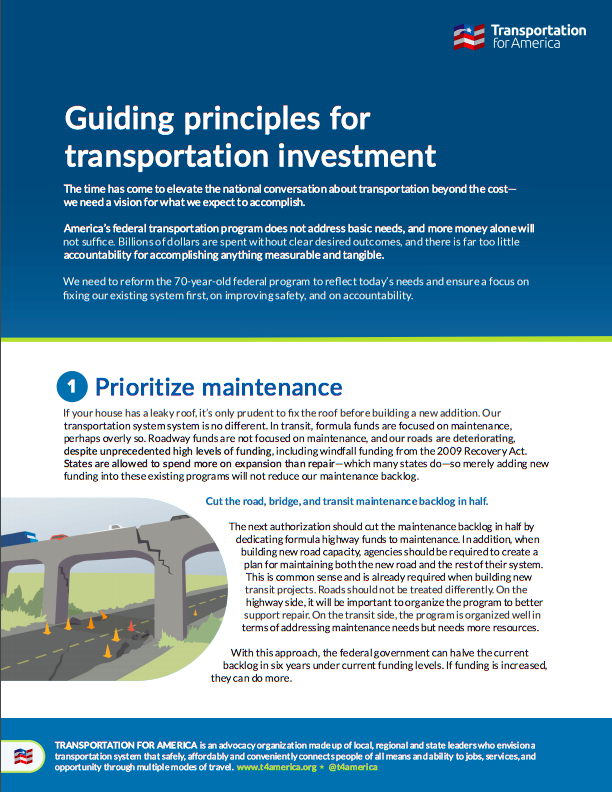How can cities embed creativity through artist-in-residence programs?
Join us for the second webinar in our series further exploring the role of arts and culture in transportation planning and community development, as we discuss two cities’ artist-in-residence programs.
State legislative stalemate jeopardizing millions in federal transit funding for Minneapolis rail project
Business leaders and suburban mayors in the Twin Cities are pleading with state legislators not to throw away dedicated federal funding for a long-planned regional transit expansion by dropping the state’s financial commitment.
What does it mean to be a smart city?
What does it mean to be a smart city? Though the definition is certainly evolving and will continue to do so, it’s important for municipal leaders and advocates in aspiring smart cities to begin developing a good answer to this basic question.
Now Hiring: Communications Intern (paid)
Transportation for America is hiring a paid Communications Intern to produce and write compelling stories and content, help manage our website and social media channels; and contribute to our grassroots advocacy and media work focusing on smart investments in transportation.
USDOT faces widespread opposition to proposed congestion rule
Nearly 5,000 individuals and 150 organizations — including dozens of local chambers of commerce and elected officials — joined with T4America to oppose USDOT’s flawed proposal for measuring traffic congestion and urge them to rethink their approach.
Proposed federal rules for measuring and addressing congestion in states and metro areas generate widespread opposition
Led by Smart Growth America (SGA), Transportation for America and the National Complete Streets Coalition, a broad coalition of business groups, local elected leaders, national and local organizations and thousands of individuals filed formal comments last week urging USDOT not to incentivize transportation projects that would punish cities investing in public transportation, treat main streets like highways, ignore the needs of people walking or biking, and push local communities of all sizes to waste billions of dollars in vain attempts to build their way out of congestion.
Time is running out to tell USDOT to measure more than just vehicles
These two streets are very different. Why does the U.S. Department of Transportation want to measure their success the same way?
Applications are open for T4America’s smart city collaborative
Today, Transportation for America opened the application process for our national, multi-city collaborative with Sidewalk Labs. This partnership, announced back on June 1st, will help cities use technology to meet their pressing transportation challenges.
How can the arts and design help neighbors envision the future?
Developing an inclusive vision for a community’s future is challenging work and it frequently suffers from not including enough voices. What role can artists and designers play in improving the visioning process? Join us for the first in a new series of webinars further exploring the role of arts and culture in transportation planning and community development.
A large congressional delegation asks USDOT to improve the proposed congestion rule
Earlier this week, a large group of senators and representatives sent a letter to USDOT Secretary Foxx, requesting that USDOT change a flawed proposed rule for measuring congestion. They asked that USDOT assess the movement of people, rather than vehicles, as a better measure of congestion and reward the improvements that can come from transit, toll lanes, or encouraging travelers to choose other options like walking or biking.





